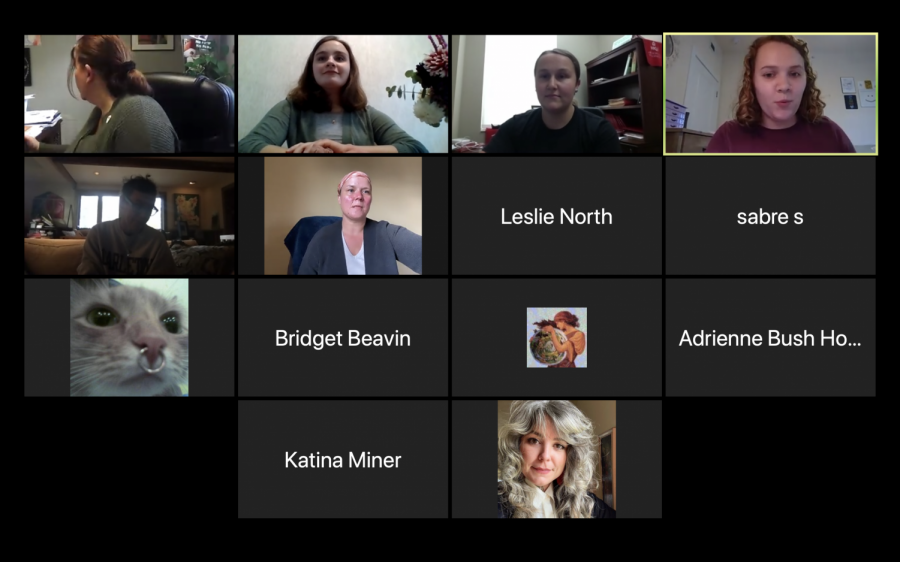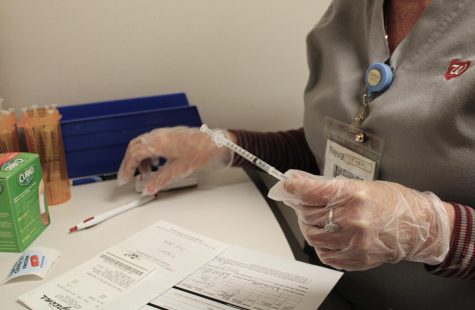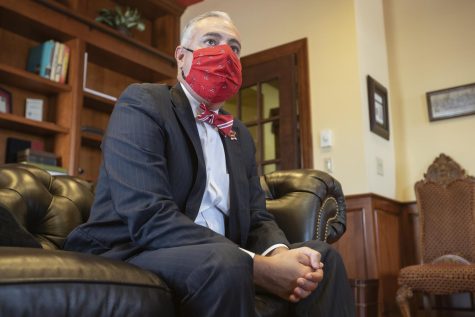Student hosts virtual panel to discuss housing and food insecurity
October 20, 2020
Editor’s note: The original story said that WKU Food Recovery hosted the panel. It was actually put on by Amanda Beavin for her citizenship and social justice capstone project. The Herald regrets the error.
A virtual panel featuring local organizations took place Monday on the issue of housing and food insecurity at WKU and in Bowling Green as a whole.
The panel was hosted by WKU student Amanda Beavin for her citizenship and social justice capstone project.
There were a total of five panelists. Elaine Losekamp, the president and founder of WKU Food Recovery, was a part of the panel.
WKU Food Recovery is a student-run organization that recovers leftover food from restaurants on campus and donates it to people in need. The purpose of this panel was to begin a conversation about solutions to the issue of food and housing insecurity.
The panel began with each panelist describing the struggles they’ve experienced since the beginning of the COVID-19 pandemic. Rhondell Miller, executive director of HOTEL INC, stated that once the pandemic began, HOTEL INC lost nearly all of its volunteers.
While the pandemic caused trouble for each of these organizations, WKU Food Recovery has expanded their operations now that more people are in need of food due to economic troubles caused by the pandemic.
“The restaurant group and Western in general have been really great about working with us to make sure we’re able to capture the surplus food that has been produced on campus,” Losekamp said. “We’ve expanded our operations a lot and are recovering a lot more food.”
On top of this, Losekamp stated that between the months of March and August, every person who came to the WKU Food Pantry was there for a COVID-19 related reason.
After the topic of COVID-19, the panelists were asked what they believe the root causes of food insecurity are, and how officials can better address those in need, especially in more vulnerable communities.
The main causes that were listed included low wages, the costliness of treating chronic illnesses, and people being rent-burdened. These issues apply to not only WKU students, but WKU staff as well.
“Our biggest users by far, in the food pantry, are staff,” Dr. Leslie North, the advisor for WKU Food Recovery, said. “If you speak to any of the users of the pantry, they each will tell you that it’s because although they’re a full-time employee, they don’t have the living wage to support having rent, buying groceries and medical bills.”
After this, the panelists went over ways they can better communicate with WKU staff, students and the Bowling Green community as a whole. They each agreed that they want to expand their outreach through social media to connect with students more.
Alex Hezik, the assistant market manager at the Community Farmers Market, said that one of the main ways to connect with those in need is to “normalize help, and make it feel like a normal and natural process to be getting help.”
Jacob Latimer can be reached at [email protected]. Follow him on Twitter @jacoblatimer_.




















